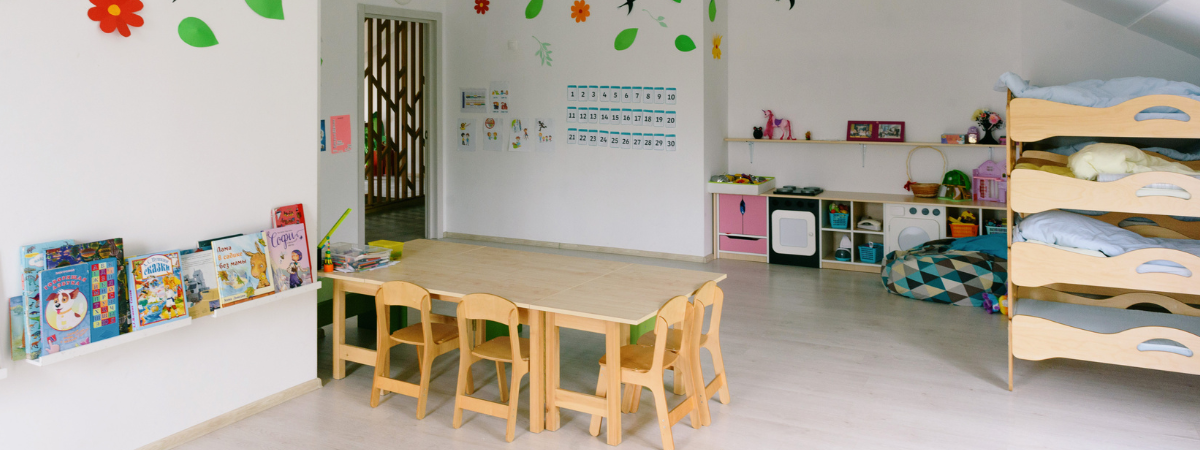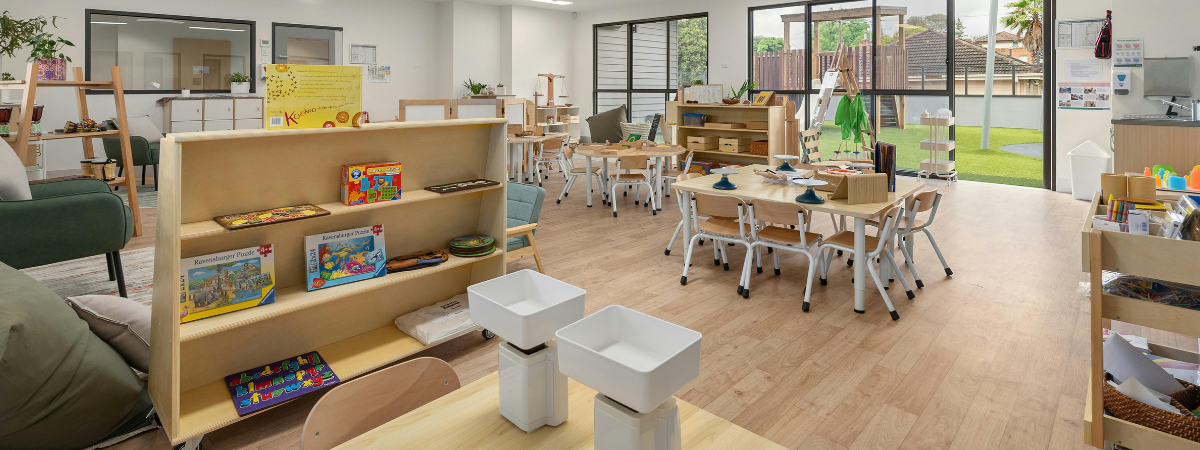Childcare Cost Assistance in Colorado
For many families in Colorado, childcare is one of the largest monthly expenses, often second only to housing. In cities like Denver, Boulder, or Colorado Springs, the cost of daycare for just one child can easily exceed $1,000 per month, putting a strain on household budgets. For parents with infants or for families with multiple children, these expenses can quickly add up and become overwhelming.
This financial pressure often forces parents to make difficult choices, such as cutting back on work hours, delaying career growth, or relying on unlicensed, informal care. That is why childcare cost assistance plays such a crucial role in Colorado. Through a mix of state programs, federal subsidies, and local resources, parents can access financial help that makes high-quality daycare more affordable and sustainable.
By understanding the available assistance programs and how they work, Colorado families can better manage costs while ensuring their children receive safe, reliable, and development-focused care.
Average Childcare Costs in Colorado
Childcare in Colorado is a significant investment for most families. While costs vary depending on the child’s age, the type of daycare, and the city you live in, the general trend is clear: infant care is the most expensive, toddler programs are slightly lower, and preschool care is often the least costly. Families with more than one child enrolled in daycare often find their monthly expenses doubling, making the financial burden even heavier.
The wide range in pricing comes from differences between urban and rural areas, as well as whether families choose in-home care or licensed childcare centers. In larger cities like Denver or Boulder, prices are usually much higher compared to smaller towns, where operating costs and demand are lower.
Because these expenses can take up such a large portion of a family’s income, financial assistance is often essential. State and federal programs, as well as local support options, are designed to help parents offset part of these costs so they can access safe, reliable childcare without sacrificing financial stability.

Colorado Child Care Assistance Program (CCCAP)
The Colorado Child Care Assistance Program (CCCAP) is the state’s primary resource for families who need help covering daycare costs. It is designed to support low-income families so parents can work, look for a job, or attend school while ensuring their children receive safe, licensed care.
Who Qualifies?
Eligibility for CCCAP depends on income, family size, and work or education status. Families generally qualify if their income falls below a set percentage of the state’s median income. Parents must also be working, job-hunting, or enrolled in an approved education or training program. Each county manages its own CCCAP program, so guidelines may vary slightly depending on where you live.
How Much It Covers?
CCCAP typically helps pay part of the childcare bill rather than covering the entire cost. Families may be responsible for a small copay based on their income, while the program covers the remaining amount directly with the childcare provider. In some cases, coverage can be close to full if the family’s income is very low and the provider is approved under the program.
Application Process
Applying for CCCAP is done through your county’s human or social services department. The process usually includes:
- Filling out an application form online or in person
- Providing proof of income and work/school status
- Choosing a licensed childcare provider that accepts CCCAP
Once approved, families are notified of their copay amount and the portion the program will cover. Because CCCAP is county-based, it’s important to check with your local office for the exact steps, eligibility rules, and application timelines.

Federal Support Programs for Childcare Costs
In addition to Colorado’s CCCAP program, families may also qualify for federal assistance to help with childcare expenses. These programs can either reduce out-of-pocket daycare costs directly or provide tax benefits at the end of the year.
Child Care and Development Fund (CCDF)
The CCDF is a nationwide program that provides states with funding to help low-income families pay for childcare. In Colorado, these funds are often distributed through CCCAP, meaning families who qualify for CCCAP are also benefiting from CCDF dollars. The program helps parent’s access safe, high-quality childcare while they work or attend school.
Head Start and Early Head Start
Head Start (for preschool-aged children) and Early Head Start (for infants and toddlers) are federally funded programs that provide free or very low-cost childcare and early education services. These programs focus not only on basic care but also on learning, nutrition, and family support. To qualify, families usually need to meet federal poverty guidelines, although some exceptions apply for children with special needs or unique family situations.

Child and Dependent Care Tax Credit (CDCTC)
The CDCTC allows families to claim a portion of their childcare expenses on their federal tax return. While it does not provide upfront savings, it can reduce the amount of taxes owed or increase a refund. Parents who pay for daycare, babysitting, or after-school care while working or studying may qualify. The exact credit amount depends on income and the number of children in care.
Local & State-Level Subsidies
In addition to federal and statewide programs, families in Colorado may also benefit from local initiatives and county-based support designed to make childcare more affordable. These programs often focus on preschool and early learning but can extend to other daycare needs as well.
Denver Preschool Program (DPP)
The Denver Preschool Program provides tuition credits for families with children in preschool. Eligibility is based on income and the quality rating of the preschool chosen. The program is open to all Denver residents, regardless of income, but lower-income families receive larger tuition credits. This makes preschool more accessible while also encouraging families to choose high-quality programs.
Colorado Universal Preschool Program (UPK)
Launched statewide, the Colorado UPK program offers free preschool hours to every child in the year before kindergarten. Families may receive a set number of tuition-free hours each week, with the option to purchase additional hours if needed. This initiative aims to prepare children for school while also lowering overall childcare costs for parents during the preschool years.
County-Level Vouchers and Scholarships
Some Colorado counties provide their own childcare support programs in addition to CCCAP. For example:
Boulder County offers additional child care subsidies for families who may not qualify for CCCAP but still struggle with costs.Pitkin County provides early childhood scholarships that help cover tuition for local daycare centers.Denver County has pilot programs that add extra support for working families with young children.
These local resources can vary widely by location, so it is important for families to check with their county human services department or local early childhood council to see what is available.
Employer and Community Resources
Not all childcare assistance comes from government programs. In Colorado, many families find additional support through their employers and local community organizations. These options may not cover the full cost of daycare, but they can make a meaningful difference when combined with state and federal programs.
Employer-Provided Childcare Benefits
Some Colorado employers offer childcare-related benefits as part of their compensation packages. These can include:
Dependent Care Flexible Spending Accounts (FSAs): Allow parents to set aside pre-tax dollars for childcare expenses.On-Site or Partnered Childcare Centers: Larger companies sometimes provide discounted daycare through direct partnerships with local providers.Subsidies or Stipends: A few employers offer financial assistance to help cover part of daycare or preschool tuition.
Parents are encouraged to check with their HR department to see if such benefits are available.
Nonprofit and Faith-Based Organizations
Across Colorado, nonprofits, churches, and community centers often provide affordable childcare options on a sliding scale. These programs may not always have the same hours or curriculum as larger childcare centers, but they are designed to support families with limited budgets. Examples include:
Community centers that offer part-day childcare at reduced rates.Churches that run weekday preschool programs with lower tuition.Nonprofits that provide scholarships for families facing financial hardship.
Why These Resources Matter?
For parents who may not qualify for CCCAP or federal subsidies, employer and community-based programs can help bridge the gap. Combining these options with state programs can significantly reduce overall childcare expenses.
Tips for Reducing Childcare Expenses in Colorado
Even with assistance programs, childcare can remain one of the largest family expenses. Parents in Colorado often find creative ways to make care more affordable while still ensuring quality and safety.
Flexible Schedules
Families with flexible work arrangements can save money by reducing the number of hours their child spends in daycare. For example, alternating work-from-home days between parents or staggering shifts can cut the need for full-time care.
Nanny Shares
A’s nanny share allows two or more families to split the cost of hiring a caregiver. This option provides the personal attention of a nanny at a significantly lower cost per family. It’s especially popular in urban areas like Denver and Boulder, where childcare prices are higher.
In-Home Daycare
Licensed in-home daycare providers typically charge less than large childcare centers. They often offer smaller group sizes, which some parents see as a benefit for personalized care.
Leverage Multiple Financial Tools
Parents can combine different forms of assistance to maximize savings:
- Tax Credits: Claim the Child and Dependent Care Tax Credit during tax season.
- Flexible Spending Accounts (FSAs): Use pre-tax income for eligible childcare expenses.
- State and Local Subsidies: Layer CCCAP, DPP, or county scholarships with other programs.
Plan ahead
starting applications early for subsidies, scholarships, or preschool programs increases the chance of securing financial support before spots fill up.
By mixing financial tools with alternative childcare arrangements, parents can significantly reduce overall costs while still providing quality care for their children.

How to Apply for Childcare Assistance in Colorado?
Applying for childcare cost assistance may feel overwhelming at first, but Colorado has a clear system in place to help families. Following the right steps and preparing the necessary documents in advance can make the process smoother.
Step 1: Check Eligibility
before applying, review the income and household size guidelines for the Colorado Child Care Assistance Program (CCCAP). Families must typically fall within a set income range, but eligibility can vary by county.
Step 2: Contact Your County’s Human Services Office
Colorado manages childcare assistance at the county level. Each county’s Department of Human Services handles applications and determines eligibility. You can start by visiting your county website or calling the local office.
Step 3: Gather Required Documents
commonly requested documents include:
Proof of income (pay stubs, tax returns, benefit statements)Proof of Colorado residency (utility bill, lease, or mortgage statement)Child’s birth certificate or proof of legal guardianshipWork or school schedules (if applying based on employment or education needs)
Step 4: Submit the Application
Applications can often be submitted online, by mail, or in person. Some counties also allow uploading documents through their websites for faster processing.
Step 5: Complete the Interview (if required)
Certain counties may request an interview to confirm eligibility and discuss childcare needs.
Step 6: Wait for Approval & Choose a Provider
once approved, families can select from licensed childcare providers that participate in the CCCAP program. Assistance may cover part or all of the costs, depending on eligibility.
Helpful Links to Get Started:
Colorado Child Care Assistance Program (CCCAP) OverviewFind Your County Human Services OfficeApply for Benefits through Colorado PEAK

Final Words
Childcare costs in Colorado can feel overwhelming, but affordable solutions are within reach. With state programs like CCCAP, federal tax credits, and local preschool initiatives, families have several ways to reduce expenses.
At ChildrenKare, we make this journey easier by helping parents compare licensed daycare providers, understand cost-saving options, and find care that fits both their budget and their child’s needs.
Start exploring trusted options in your area today: